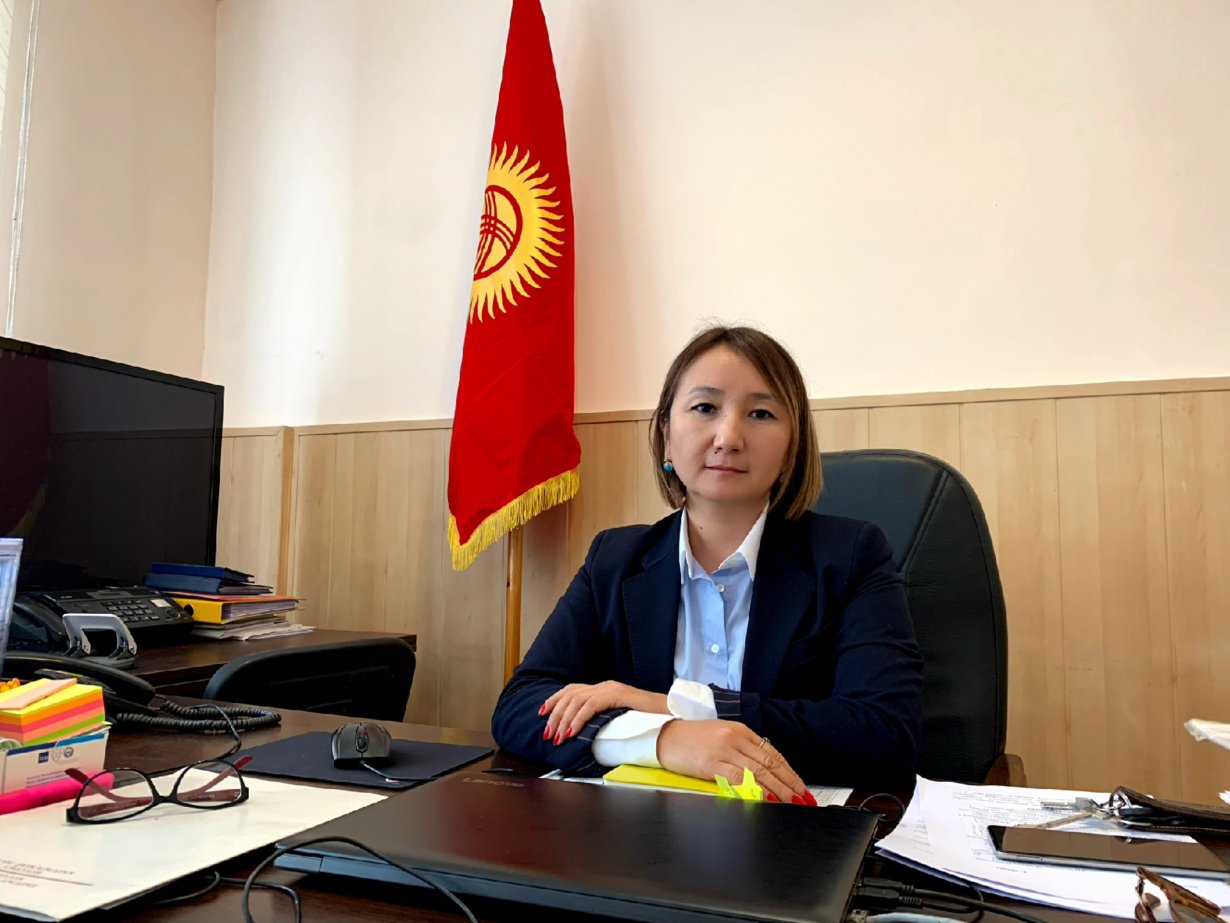
Interview with Gulnura Mamyrova, Head of IVET Dept Ministry of Education and Science, Kyrgyzstan
From Nick Holdsworth - November 23, 2022
As DARYA – the European Union’s new project in Central Asia – that aims to bring people and ideas together to create new opportunities for young men and women in the region gets underway, the European Training Foundation is talking to key figures involved in education, training, the labour market and economic development to better understand what can best help develop skills, and key 21st century competences including green, digital and entrepreneurial aptitudes.
DARYA – Dialogue and Action for Resourceful Youth in Central Asia – will work with people across the public and private sectors in education and the labour market in Kazakhstan, Kyrgyzstan, Tajikistan, Turkmenistan and Uzbekistan, as well as organisations and peer groups in Europe during the coming five years to support self-sustaining, long-term strategies for skills and labour market development.
Gulnura Mamyrova, Head of the Initial Vocational Education and Training Department of the Ministry of Education and Science, Kyrgyzstan, says that the key challenge of creating a better future for young people in her country has long been known: there is a major imbalance between the supply and demand of labour market skills.
“We have a top-heavy higher education system, where student numbers – around 230,000 – are double that of those entering initial professional education institutions. If you create a graphic of this, it is if you have an upside-down triangle. And that is the wrong way up.”
This “imbalance between labour market needs and supply” has long been a feature of Kyrgyz education and is the result of deeply-entrenched social attitudes towards vocational education and training (VET), and the legacy of poor investment and image going back to Soviet times. VET is seen as second best.
“The VET system is not so popular or prestigious – which is why a lot of young people prefer to enter higher education,” Mamyrova says. “When they graduate they have to turn to our short courses to train for specific skills and jobs.”
In the past few years there has been a gradual shift in attitudes, she says: with the pandemic acting as a driver for this.
“During the pandemic a lot of people began to understand that obtaining skills is a more effective way to find a job and earn a decent income.”
DARYA is a programme that can help countries in Central Asia move more rapidly towards a skills-based education system that will benefit employers and employees, she observes.
“Technical support under the project will help us create new methodological approaches; to build capacity in the VET system with stakeholders such as the Ministry of Education and Ministry of Labour, employers and those involved in creating a new system of national qualifications to increase the effectiveness of modern VET.”
Greater inclusion of employers in skills provision will be essential to ensuring more opportunities for young people to obtain the skills necessary for a modern economy. Independent certification and validation of qualifications can only be done through involving a much wider set of stakeholders.
“We need to use more than just state experts – we need to draw on the experience of those in the labour market too,” she adds.
The regional scope of DARYA will also act as a key incentive to reform, she believes.
“By developing our national qualifications systems and frameworks, and through working with colleagues in other countries in the region, we will be able to define, compare and exchange best practice. DARYA will connect our countries and promote reform.”
Reviewing the skills provision eco-system will also shine a light on specific areas that – to a greater or lesser degree – impact all countries in Central Asia, such as labour migration.
Nearly half of Kyrgyzstan’s economically-active population (2.5 million people from a population of 7 million) are migrant workers – with Russia traditionally being a key destination. The war in Ukraine has provoked many to return this year and policymakers are keen to take advantage of the skills they bring with them.
“Creating better ways to certify and validate the skills of these returning migrants is something we hope that shared experience through DARYA will help us with,” she says, noting that as much as a third of Kyrgyz GDP is based on remittances from migrants.
In a country where 1.3 million people (59% of the working population) have no professional qualifications, recognising those skills that returning migrants have could have a major economic benefit.
She is also keen to use DARYA to increase digitisation in the VET system.
“I’ve been in post for six months now and we have created an online presence so that young people don’t necessarily have to go to our colleges, but can enrol on online courses. Step by step, if we pay attention to more digitalisation, it will help make our system more modern and attractive to young people.”
She also hopes that such a move will further help reduce the numbers of young people who are not in education, employment, or training (NEETs), which Kyrgyzstan has already reduced from 27% of the youth cohort to 19% over the past five years.
That reduction has been greatly helped by moves to increase the professional standards of vocational schools by the simple expedient of increasing salaries by 80% to attract more highly qualified teachers. The average monthly salary for a Kyrgyz vocational teacher is now equivalent to €290. That compares well, for example, to the €75 a postman earns.
Asked to encapsulate her thoughts, she says: “It is time to give our young people hope within our own country.”
